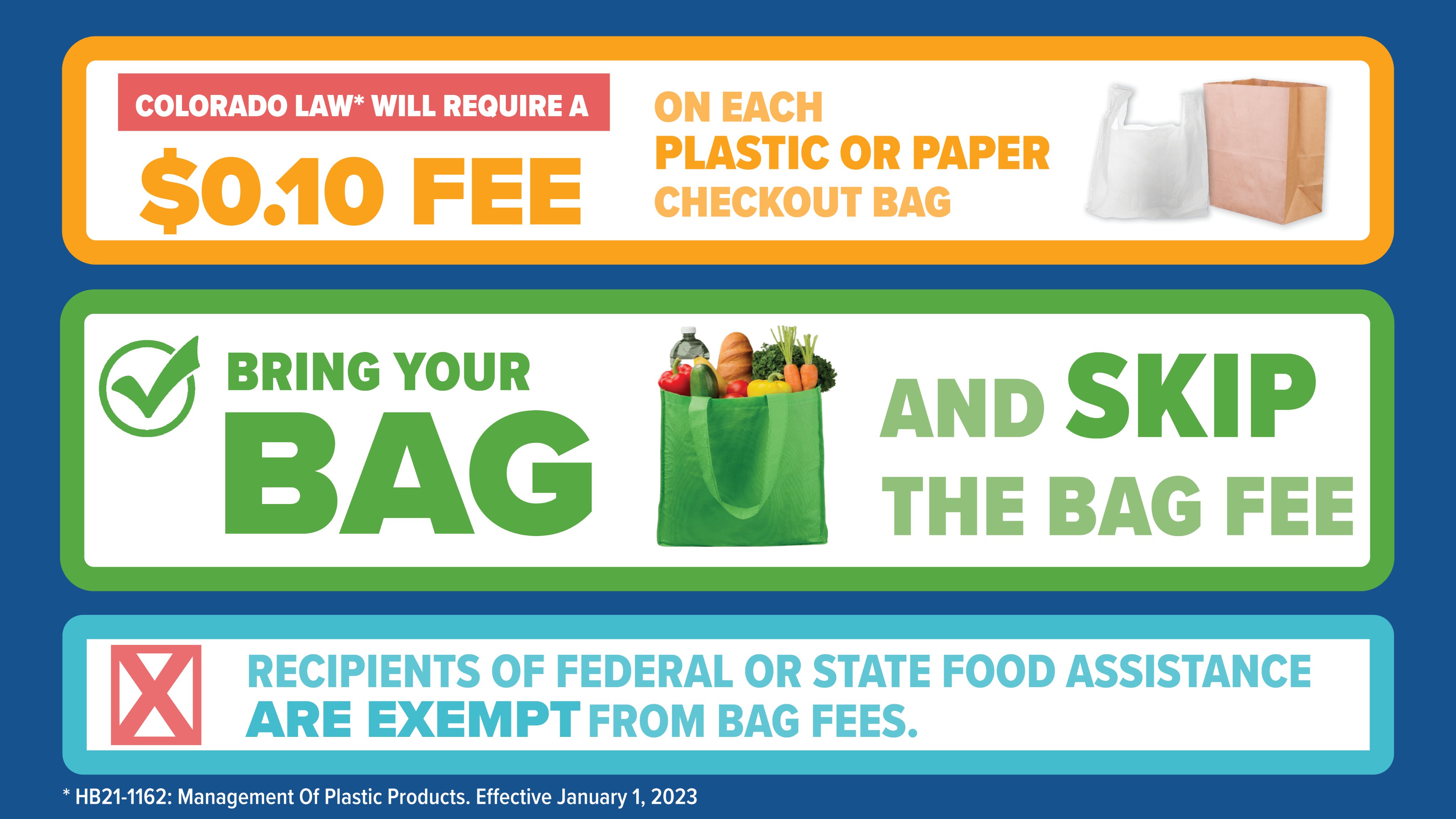Carry Out Bag Fee
Under a bill passed by the Colorado State Legislature in 2021, the state will require stores and retail food establishments with more than 3 locations in Colorado to charge customers a $0.10 fee for each single-use plastic and paper bag used at the point of sale starting on January 1, 2023.
Stores affected by the state law:
A retail store IS affected if either of the following apply*:
- The store has more than three (3) retail locations
- The store is part of a franchise, corporation, or partnership that has physical store locations outside of Colorado
Examples:
- A grocery store with more than three locations across Colorado would be affected, a grocery store with three or fewer locations would not.
- A chain fast food restaurant would not be affected, because it is food service (and is not a grocery store or convenience store).
- Any local restaurant or café would not be affected.
- A local retail store with one location in Westminster would not be affected.
- A retail souvenir shop that is part of a larger franchise with a location in Utah would be affected.
Exemptions:
- Businesses with three or fewer locations in Colorado
- Farmers and roadside markets
- Laundry or dry-cleaning services
- Pharmacies
- Bulk stores
- Restaurants are exempt from the plastic bag fee, but are prohibited from distributing Styrofoam containers on and after January 1, 2024
Learn more about the fee and compliance here
Business Resources:
Pay the fee at the Sales Tax Website
Questions: call the sales tax line at 303-658-2065 or email sales tax at salestax@westminsterco.gov
Implementation Support: the SAGE Sustainable Business Program can provide information and help find the best way to make changes that work for your business, email SAGE at SAGE@westminsterco.gov 
For more information on business compliance:
Visit Eco-Cycle's guide covering bag fees
Resident Information and Resources:
Skip the fee and make the shift to reusable bags today!
- Get your bags – Most households need 5-10 bags. New and used reusable bags can be found at grocery stores, clothing stores, thrift stores or online marketplaces
- Stash strategically?- Place reusable bags in a convenient location like next to the door, in your car, bike trailer, purse, or backpack so you always have them when you need them.
- Get going?- Use reusable bags each time you shop to get into the habit.
- Get creative?- Already in the checkout line but forgot your bags? Put small purchases in a purse or backpack, or pack them back into your cart to transfer them to your car or bike trailer.
Exemptions: The bag fee does not apply to anyone who provides proof of participation in federal or state food assistance programs such as SNAP or EBT.
Assistance: The Sustainability Office is currently currently working on a program to provide free reusable bags to residents in-need of bags
Bag Fee Uses:
-
Administrative or enforcement costs associated with developing and implementing the fee
-
Providing reusable bags to the community
-
Educating residents, businesses, and visitors about the impacts of disposable bags
-
Other waste reduction, recycling, composting, or waste diversion programs
Because the bag fee is a fee and not a tax, all proceeds collected in accordance with this State law can only be used for the purposes listed above and cannot be used for general government expenses or for general sustainability projects. As this is a new law, staff will explore what latitude there is within these categories. The fees collected under this law will be tracked and managed in a separate fund established by Finance staff.